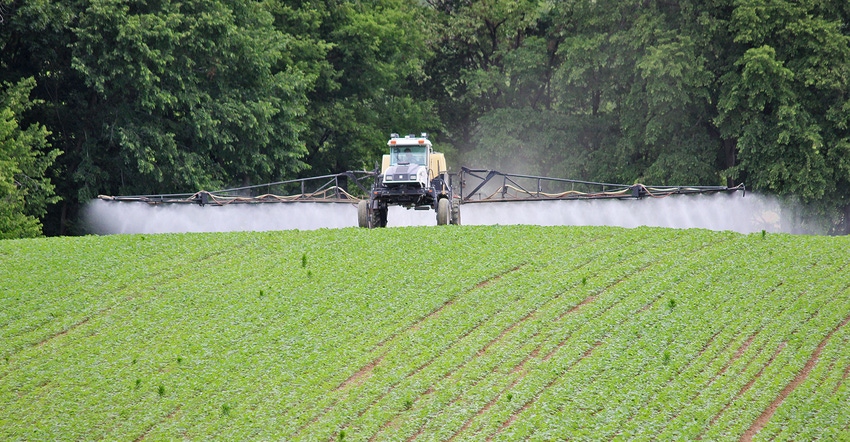March 4, 2019

Lawsuits surrounding dicamba spray drift should have farmers looking at their insurance policies.
University of Missouri economist Ray Massey says farmers need to understand their third-party liability regarding herbicide applications. He recommends consulting with an insurance or legal professional experienced in agricultural matters after reviewing their policy.
Know your coverage
Crop insurance does not cover damage from pesticide drift, according to the crop insurance manual of the USDA’s Risk Management Agency. However, USDA allows farmers to exclude yield from damaged acres in their actual production history numbers if they report damages to their insurer within 72 hours.
General liability insurance may or may not help with third-party herbicide injury, Massey says.
Insurance companies carefully consider the cause of loss in cases of herbicide injury. Third-party herbicide injury causes include spray tank contamination, drift and volatilization. Liability insurance generally covers accidental tank contamination and drift, but it is less clear whether damage caused by volatility is covered.
Liability insurance companies usually wait until after harvest to settle an approved claim so they can estimate yield loss. They do this because yield loss may result from other factors, such as weather, Massey says.
Assess your policy
Massey says farmers should look at their policy closely for the following items:
• Verify that your applicator is certified to apply the pesticide being used. Check the applicator’s license. If you spray your own crops, take the required training for certification.
• Review your application for general liability insurance. Update your application if you have made any changes in your farm operation since applying. This includes hiring an employee.
• If you spray your own fields, verify that you have a spray endorsement provision in your policy. If you spray for others, verify that your endorsement covers commercial and private applications.
Source: The University of Missouri Extension, which is solely responsible for the information provided and is wholly owned by the source. Informa Business Media and all its subsidiaries are not responsible for any of the content contained in this information asset.
You May Also Like




